Caulfield Dermatology offer a comprehensive approach to skin care.
We are dedicated to providing a comfortable and confidential environment for you to discuss your health concerns and goals . Using advanced diagnostic and therapeutic services with state-of-the-art technology, we provide customised care and treatment to best treat you and your family. We also offer real time video consultation with our specialist dermatologists for diagnosis and treatment plans for many skin conditions. The following are provided for information purposes only.
Anti-wrinkle injections/Muscle relaxants
One of reasons the skin can begin to look aged is due to wrinkles. Frown and forehead lines are the result of repeated muscle contraction along dynamic areas of the skin.
Anti-wrinkle injections contain a purified protein that temporarily relaxes muscles, giving a softening and smoothing effect on exising lines. With repeated administration, further wrinkles may stop forming.Anti-wrinkle injections are a safe, relatively painless way of getting quick results when combating the signs of ageing.
Muscle relaxants can be used to treat a number of problem skin areas, such as frown lines, forehead lines, crows feet, bunny lines (lines on the nose when smiling), smile lines, upper-lip lines, mouth drooping, neck bands, a squared facial shape and many other areas where wrinkles occur.
Facial volume
As we age, the buoyancy and lift of our facial skin lessens, due in part to loss of naturally occurring fat pads. This can give a drooped, saggy appearance to the face. Dermal fillers can recreate this volume loss, giving back the more youthful look of fullness.
Skin boosters or hyaluronic fillers contain a naturally occurring sugar, that replaces the skin’s own collagen building blocks. When these fillers are introduced into the skin, the body naturally accepts them, and they absorb water to fill and hydrate the skin. The effects can last for up to 2 years, depending on the substance used.
Skin Treatments
Skin peels
At Caulfield Dermatology, we now offer a range of skin peels and treatments that can be tailored to suit your skin’s individual needs. Peels usually contain one of a number of fruit acids, of differing concentrations. At our clinic, we use them to treat skin conditions such as acne and sun damage, as well as for skin rejuvenation. Peels are also a good pick-me-up for those without skin problems, but who desire to maintain their skin health. Peels give the best results when done in a series, separated by a few weeks. Before your first peel, a dermatologist will assess your skin needs and prescribe the appropriate peel. The treatment is then carried out by a nurse.
The peel will be prescribed by a dermatologist and the treatment will be performed by a registered nurse. A consultation with your dermatologist will help answer the following questions, all of which will be personal to you.
- What conditions can be treated with a peel?
- Is a peel the right treatment for a me?
- What should I expect after the peel?
- When can I return to work?
- How many peels will I need?
Acne Scarring
Acne can result in a number of different types of scar, amd may therefore require a variety of different treatments. A dermatologist can discern what kind of treatment is required for your type of scarring. A combination of different treatment types such as laser, subcision, peels and light therapy may be used.
Rejuvenation
Aged, tired-looking skin is the first thing that will give away your true age! The newest therapies are radiofrequency (RF) devices. RF appies small amounts of heat safely into the skin’s lower layer, known as the dermis. This leads to remodelling of collagen and elastin, which in turn leads to plumping of the skin. The skin overlying the dermis, known as the epidermis, also tightens, giving the treated skin a smoother appearance. RF treatment gives great results and causes minimal downtime.
Acne
Some patients do no want, or cannot be prescribed medicines for their acne. Fortunately, there are a number of scientifically proven, non-tablet treatments for acne. A combination of light and topically applied treatments can result in a significant reduction in acne lesions.
Facial redness and veins
A number of medical conditions can give rise to a red face, with obvious veins. Rosacea is the most common of these. In the right hands, vascular lasers are able to specifically treat these issues without affecting the surrounding skin. The best results are often obtained with repeated treatments, spaced a few months apart.
Pigmentation
Pigmentation can be a cause of concern for many of our patients, and has a number of causes such as sun damage, age spots and hormonal changes. Before embarking on any form of treatment for pigmentation, it is important that a dermatologist assesses the cause before assigning the appropriate treatment. As, when used inappropriately, some pigmentation treatments can worsen the problem. A combination of laser, curettage, peels and skin care may be suggested. Pigmentation treatment is best performed in the cooler months, when excessive UV exposure is likely to be less frequent.
Hair loss is common and there are many causes. It can also be one of the most distressing medical conditions to have. Our dermatologists are expertly trained in the diagnosis and management of hair loss. Like many skin conditions, if the diagnosis is made early and appropriate treatment is started efficiently, the damage caused by the disease may be halted, and in many cases reversed. Common types of hair disorders managed at Caulfield Dermatology include alopecia areata, female pattern alopecia, male pattern alopecia and scarring alopecias.
Nails are also subject to various kinds of disorder, and although fungal infections of nails are common, they are not the only cause of nail disease. Psoriasis is a very common cause of nail disease, and skin cancer can also affect the nail region. Dermatologists are best trained to diagnose and manage your nail condition.
It takes time and skill to develop a skin care regimen for each individual patient. Factors such as skin type, and conditions such as oiliness, redness and eczema must all be taken into account, as well as considering the prevention of ageing. Our dermatologist team have trained for many years in the science of skin care and welcome the opportunity to tailor a regime specific to your skin’s needs.
A basic skin care routine is required to maintain skin health and beauty, and is usually made up of cleanser, moisturizer and sunscreen. In general terms, regimens for otherwise healthy skin include daytime products that protect the skin and nighttime products that repair skin damage.
When coming in for a skin care consultation we ask that you bring in what you are currently using on your skin, as most often these products are sufficient. But in some cases they could be doing you harm! At Caulfield Dermatology, we believe that one skin care solution, does not fit all. And for that reason we do not stock a particular brand of skin care products. We are, however, familiar with most products on the market, and are ideally placed to come up with the perfect range for you.
Australians have the highest rate of skin cancer in the world. The most common types of skin cancer are basal cell skin cancer (BCC), squamous cell skin cancer (SCC) and melanoma. Skin cancer is a common and often preventable cause of suffering and death, and dermatologists are experts in its detection and management.
Curing skin cancers is possible, but it is more likely if they are found and treated early. Self-examination is important for the early detection of skin cancers. It is also fortunate that with increasing public awareness about healthcare issues, people now want to be more proactive with their health and tend to go for skin checks with their dermatologist on a regular basis.
Skin cancers usually present as a lesion that is changing in size, shape or color. They can ulcerate and bleed and can sometimes cause pain. Melanoma are usually dark asymmetric lesions but there are exceptions to this rule. Skin cancers such as melanoma usually affect sites that have been chronically or intermittently exposed to the sun.
However, not all skin cancers are sun-related. Less commonly, skin cancers can occur in the genital region and even on the soles of the feet or under toenails. If you have a lesion of concern in an unusual site you should bring it to the attention of your dermatologist. In fact, if you have any skin lesion that you are concerned about, you should seek medical advice as soon as possible.
At Caulfield Dermatology we believe that urgent skin conditions should be dealt with promptly. Examples of some of the urgent skin disorders include:
- Severely itchy rashes.
- Changing skin lesions, especially pigmented lesions suspicious for melanoma.
- Blistering skin diseases.
- Severe acne.
If you have an urgent skin disorder please contact our receptionist, or email us via our website at info@caulfielddermatology.com.au. In order to assess the urgency of your problem a detailed referral will be useful.
If you are a medical practitioner requesting an urgent referral you can contact us in the following ways:
- Via our website.
- Via argus-based communications.
- Via fax on (03) 9519 8555
By phoning our clinic directly on (03) 9519 8500 and speaking with one of our dermatologists.







 03 9519 8500
03 9519 8500